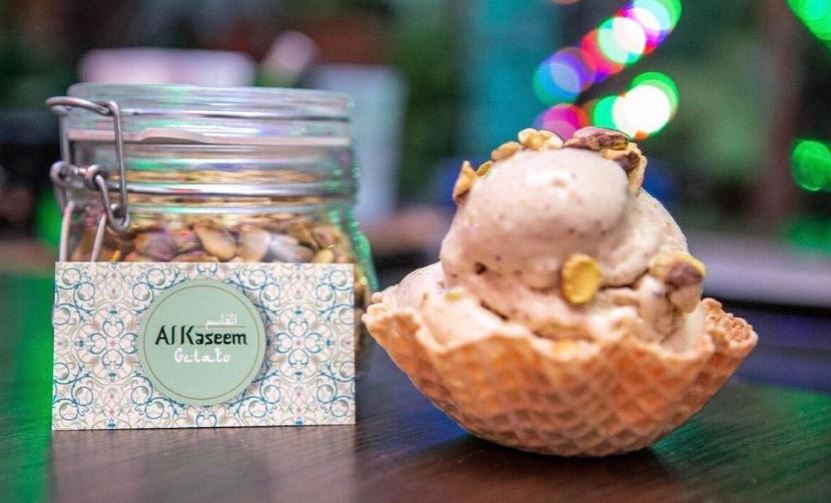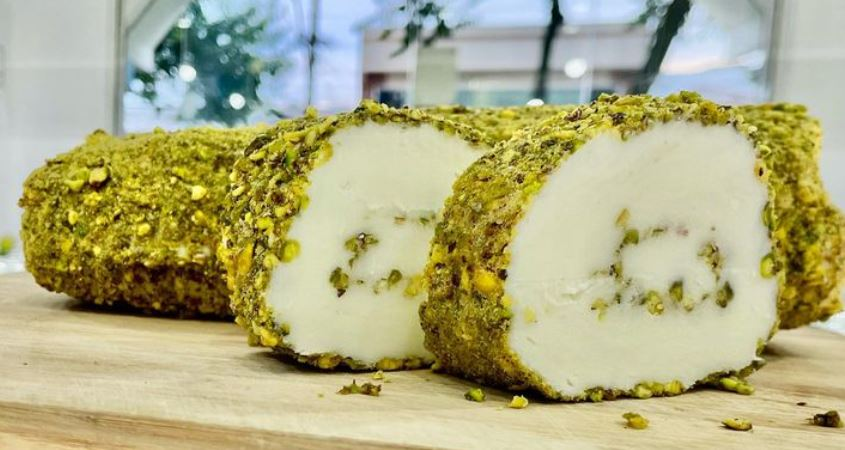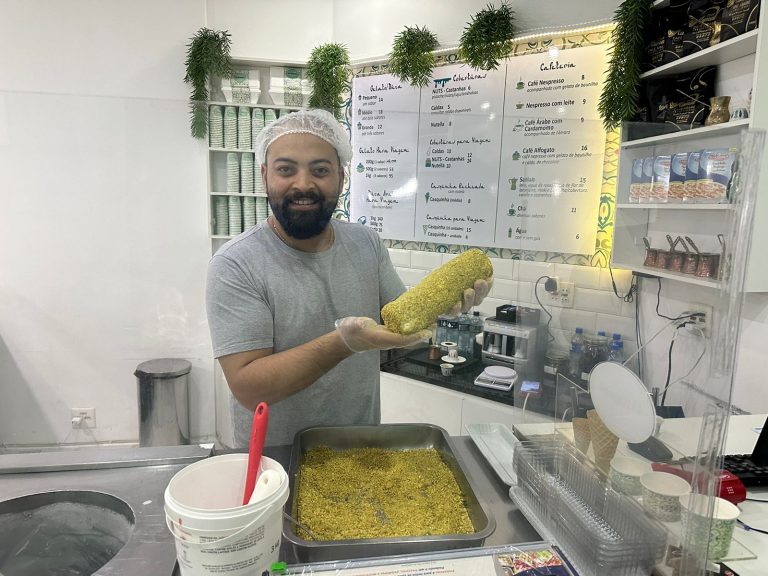São Paulo – Alone and not speaking a word of Portuguese. That’s how Arab-born Alaa Kaseem arrived in Brazil in 2013. Born in Syria, with Palestinian and Lebanese ancestry, he lived in Lebanon for a few years with his family, but it was after landing on Brazilian soil that he felt at home and was able to realize his plans. Kaseem became an entrepreneur and now has two Arab ice cream shops under the brand Al Kaseem Gelato in the city of São Paulo. They were founded along with his wife, Luciana Tucci.
“I was always looking for a place that would welcome me, grant me citizenship, and allow me to open a business, and I only achieved all of this when I arrived in Brazil. Before, I was treated as a refugee—now I am treated as a citizen, I can own property in my name, and I feel like a Brazilian,” Kaseem told ANBA.
The middle brother among five sisters, the 34-year-old Arab decided to open an ice cream shop in Brazil after meeting Tucci. “She was already working with ice cream when we met. We started talking, and I told her that I knew how to make Arab ice cream. I did some production tests where she worked and then started selling it to Arab restaurants,” he said.

Influenced by Italian-origin Tucci, the Arab ice cream received a flair of gelato, the famous Italian ice cream, and in 2019, it began to be sold in a physical store. The first unit of Al Kaseem Gelato was founded in the Moema neighborhood, in the southern region of São Paulo.
As for his marriage to Tucci, Kaseem says it happened organically. “We worked together for a few years, got along well, started dating, and then we got married.”
Very different from the ice cream sold in Brazil, the Arab ice cream needed some promotion to succeed. “We promoted our ice cream shop for a month, and by the second month, there was already a line of people wanting to buy the ice cream. Now, we have many customers, both Brazilians and Arabs, all of whom buy regardless of the weather.”

Kaseem explains why his ice cream is so successful. “Our main distinction is that we make a natural product—we use no chemical ingredients in the development of the ice cream. That’s why it’s common for our customers to say that our ice cream doesn’t sit heavy in their stomachs, unlike what happens with industrialized products.”
Free of fats, colorings, or artificial flavorings—that is how Alaa’s Arab ice creams are made. Among the best-selling flavors are rosewater cream, orange blossom, pistachio, coffee with cardamom, date, and apricot with cashew and vanilla.
As business grew, a second ice cream shop opened this year in the Jardins neighborhood, also in the southern region of São Paulo. The experience of crafting ice creams began during Kaseem’s first job in Syria, at a candy shop.
“I was looking for a job when I arrived there. I started working washing dishes, but since the space was very large, I eventually got to the area where they made ice cream. Very curious to learn new things, one day I asked to be taught. I kept trying and learning until I was making Arab ice cream,” Kaseem recalls.
Arab ice cream maker’s adaptation in Brazil
Despite his experience in Arab cuisine, when he arrived in Brazil, Kaseem first worked selling water and coffee on Rua 25 de Março, one of the most important commercial centers in São Paulo, as he didn’t understand the language.
“In the beginning, it was difficult—I didn’t understand any Portuguese. After a while, things began to change. I managed to work in some Arab restaurants, where I learned Portuguese and got to know more about the city. As I learned the language and got settled, I started to feel better, like I belonged here,” he recalls.
It was in one of those restaurants that Kaseem met his soon-to-be wife. “The place where she worked, an ice cream shop, was a client of the owner of the restaurant where I worked. We talked about ice cream until I had the idea to produce Arab ice cream.”
Read more:
Syrian arrived as a refugee and got a doctorate from UFRJ
Report by Rebecca Vettore, in collaboration with ANBA
Translated by Guilherme Miranda




